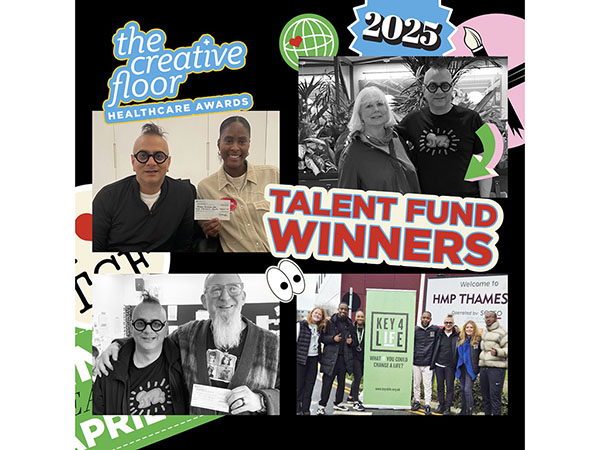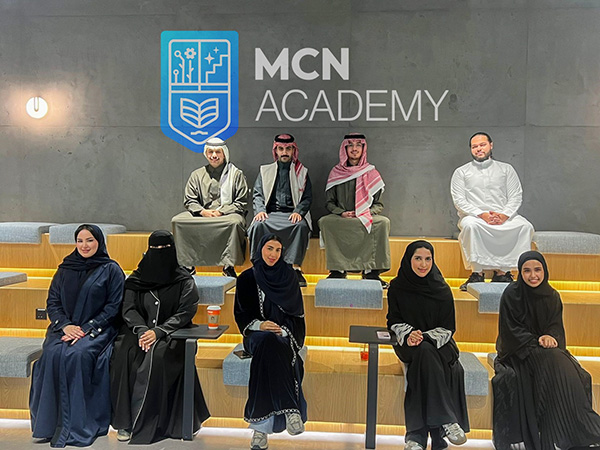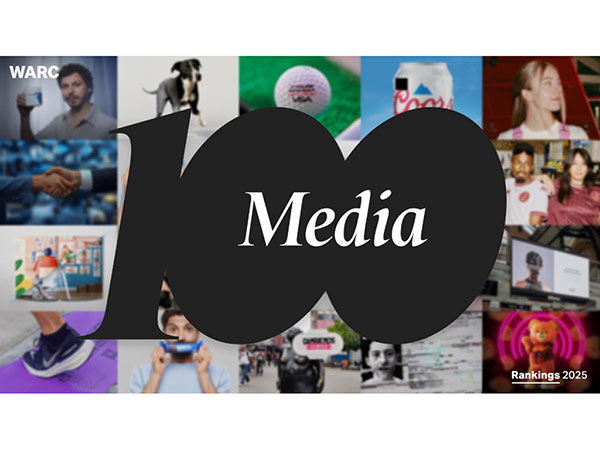News - Advertising
Landing your Dream Job
August 22, 2019

Finding a job has never been easy. It can be time-consuming, depressing and discouraging. This is arguably truer for graduates than for anybody else, with the thousands of fresh-faced 20somethings who enter the job market every year having to spend months sending out CVs, applying for jobs, and going through harrowing interviews. All with the hope of landing their dream job.
Take Christopher Shearer as an example. After four years of expensive education, Shearer and his creative partner moved to London with high hopes of employment and a student portfolio that they thought would blow the next David Ogilvy away. Shearer had studied advertising at Bournemouth University and creative advertising at Falmouth University, both in the UK.
“I have always had a fair understanding of how the advertising industry worked,” says Shearer. “I spent four years studying creative advertising, but there is only so much a textbook and a retired creative director can teach you before you have to submerge yourself into placements and book crits. That’s when you find your worth, which I can tell you isn’t much.”
The bigger agencies were brutal when it came to judging creativity, even if they were easy to talk to regarding the agency itself. “The smaller agencies were warmer and more welcoming,” says Shearer. “They were interested in our next steps and spoke about their work and asked our opinion, which was refreshing to hear. We felt as though our opinion was valid, which made me feel optimistic about the work and my future.”
However, after multiple mini placements and a few brutal critiques of his portfolio, when Shearer did finally land a job it was in a bar, not at an agency.
“I’ve never been scared of hard work but working 14 hours a day in a poorly lit bar would drive the sanest man crazy,” says Shearer. “And to top it all off I’d have to fit interviews, book crits and folio work around this schedule. When it came down to it, demoralising and heartbreaking were the two words that came to mind. It’s not easy out there. But when you want something as bad as I wanted it you’ll keep going. I would have taken anything, but still nothing. It made me think that all my efforts in education had gone to waste. So I went to the post office to renew my passport and applied overseas.
“I was just hungry to get my hands dirty. I didn't care if I was making tea for the coffee boy.”—Chris Shearer
“I wanted to leave my bartending job more than anything and my rent was coming to an end. I needed to secure a job before the month was up. I had two interviews over three weeks and, honestly, at the time I had no idea how they went. But it turns out I’m not too bad at interviews and there was no need to panic. So, I packed my bag with no jackets or jumpers and got on the next flight to Dubai.”
Shearer had landed a job as a junior copywriter at Impact Proximity. There, just like every other successful job seeker, he would come face to face with the realities of life at an agency.
“The first day in the office I walked in with what I thought was confidence,” says Shearer. “Turns out I looked like that kid from The Sixth Sense, only I didn’t see dead people, I saw creative people. As I didn’t have a desk when I first arrived, I sat on the couches close by to the creatives to get to know them. It was nerve-racking in my first few weeks, especially working as a single creative with no art director. You were in it alone. But you have to ask for help to progress and get better. That’s one of the most important pieces of advice I would give to people starting in the advertising business. Ask for help so they don’t have to clean up your mess later because you didn’t understand something. You are there to learn.
“[But] looking for a job isn’t difficult. It’s a matter of finding the right job when it comes to growth, learning and compensation that is challenging…-- Peter Hankach
“I have never wanted to work in any other industry as I believe advertising is an art form that holds a message, and I was fascinated about that. So money was not a driving factor. I was just hungry to get my hands dirty. I didn't care if I was making tea for the coffee boy. At least I was in the door, and my feet were under the desk.
“The workload was slow to start with and I ended up asking everyone I could for briefs. ‘Can I jump on that?’ ‘Can I help at all?’ and just being downright annoying. But slowly the work increased and I was utilised more, burning the midnight oil and sometimes the candle at both ends, but that’s just how it is when you first start.”
Such experiences aren’t limited to Shearer. Mohammad Nabil, a graduate of the Canadian University Dubai, is currently an intern at FP7 and has found the search for employment challenging. “It’s very tough and demoralising as you see your hard work and dedication not filling any spaces,” he says. “Also, in my case I hate sitting around and not being productive… Job searches are numerous, interviews usually carry the same questions, and sadly [the outcome] relies on your national background and your beliefs aligning with the HR team. With FP7 it was a lot different because of the long process that requires you to attend different meetings with diverse people.”
Both Nabil and Sara Fawzy, an account executive at FP7, have found that the workload at the agency is far greater than they had expected. Yet Nabil is sure of the value of interning. “Hard work and knowledge will always evolve through practice, so interning for important companies is key,” he says.
Peter Hankach, an account executive at FP7 and a graduate of the American University of Beirut, applied to many jobs in Europe but was put off by the fact that he would have to start as an intern. When it came to the UAE, he encountered different problems, not least the fact that the market is experiencing a downturn. “It has become harder to find jobs as companies are hiring less and less while waiting for the market storm to pass,” says Hankach.
“[But] looking for a job isn’t difficult,” he adds. “It’s a matter of finding the right job when it comes to growth, learning and compensation that is challenging… What I have learned so far is that when choosing a job, you need to make sure you are building and investing in yourself for the long run.”
Hankach’s advice for those seeking work? “Specialise in a field which has high demand and low supply, while making sure it’s a sector that will keep growing in the future.” Fawzy’s advice? “Make sure you love what you are doing because that’s the only way you will excel in it,” she says.
Shearer, meanwhile, is settling in to his first job and has found that it’s not only “incredible to work with some of the best creative minds in the region”, but that “the amount you learn is indescribable”. However, his experience of looking for work is instructive. “Nobody cares, work harder,” he says simply.
The Best Way of Hiring According to Recruiters in the Middle East
The ‘2019 Online Recruitment in the Middle East and North Africa’ poll, conducted by regional job site Bayt.com, revealed a variety of insights about the evolving hiring landscape and how recruitment practices have changed in the digital era. According to the poll, online job sites emerged as the quickest way to find and recruit talent in organizations across the MENA region. In fact, 73% of MENA respondents agree that online recruitment has facilitated the hiring process at their companies.
Recruitment Today
Nearly one in two respondents revealed that their company is looking to hire in the next three months. And while most respondents classify hiring practices in their organizations as sophisticated (57%), they also indicate that it is time-consuming (60%) and costly (45%).
Countering that, poll results indicated continued growing trends in usage for online recruitment tools across the MENA. 28% of poll participants said that searching for CVs directly is an effective strategy, whilst 28% prefer posting jobs on portals, and 16% rely on company website or online Applicant Tracking Systems (ATS).
For all surveyed MENA recruiters, certain factors contribute to a successful hiring process: the ability to screen and filter candidates efficiently (37%), accessing the largest choice of job seekers (30%), an ability to test and assess candidates online (14%) and strong employer branding (10%).
Key reasons for organizations to use online recruitment tools are: cost-effectiveness (13%), efficiency (19%), larger talent pools (29%), ease-of-use (17%) and better-quality candidates (17%). In fact, 79.5% of respondents believe that online recruitment tools enable employers to communicate with candidates in a more effective manner. Less than 5% disagree while the remainder are neutral in response to this question.
The Jobseeker Perspective
The Poll also gauged insights on the online hiring process from the jobseeker perspective. It found that jobseekers in MENA are keen on using digital tools to find employment, as (59%) respondents use online job sites to apply, (27%) use company websites directly, (5%) used company drop-ins, (2%) prefer attending job fairs and events and (3%) use their personal networks and referrals from acquaintances.
Data for the 2019 Online Recruitment in the Middle East and North Africa poll was collected online from 19 May 2019 to 28 July 2019. Results are based on a sample of 6,567 respondents from the following countries: UAE, KSA, Kuwait, Oman, Bahrain, Lebanon, Jordan, Iraq, Palestine, Syria, Egypt, Morocco, Algeria, Tunisia, Libya, Sudan, and others.













